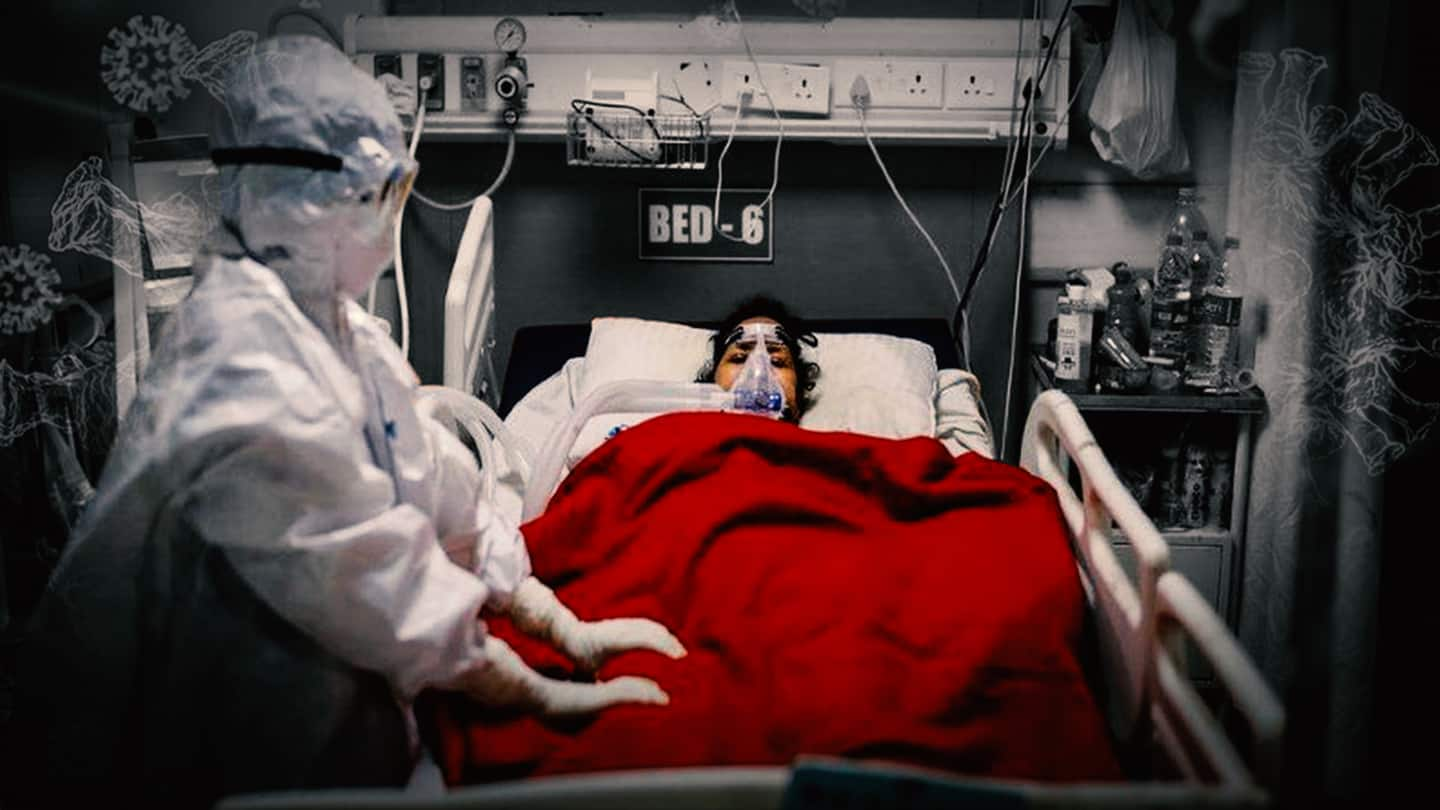
Coronavirus: As second wave recedes, intestinal gangrene worries rise
What's the story
India on Thursday reported 1.34 lakh new COVID-19 cases, along with over 2,800 fresh fatalities.
The nation's daily test positivity rate further declined to 3.6%.
As the second wave of COVID-19 is now receding, cases of COVID-induced intestinal clots and gangrene have emerged. Such cases, that have been reported in Mumbai, could also turn fatal, doctors say.
Here are more details.
Statistics
India's tally reaches 2.84 crore; 3.38 lakh dead
According to the Union Health Ministry, till Thursday morning, India reported a total of 2,84,41,986 COVID-19 cases. The death toll has reached 3,37,989.
So far, 2,63,90,584 patients have recovered, while 17,13,413 cases involve active infections.
In the past 24 hours alone, India recorded 1,34,154 new infections, 2,11,499 more discharges, and 2,887 fresh fatalities.
22,10,43,693 vaccine doses have been administered so far.
States
25K more test positive in Tamil Nadu
Maharashtra reported 15,169 new COVID-19 cases along with 29,270 more recoveries.
Karnataka, the second worst-hit state after Maharashtra, reported 16,387 new cases and 21,199 discharges.
Meanwhile, the third worst-hit Kerala added 19,661 new cases and 29,708 recoveries.
Tamil Nadu, the fourth worst-hit state, reported 25,317 new cases and 32,263 recoveries.
Andhra Pradesh reported 12,768 new cases and 15,612 recoveries.
Gangrene
Mumbai: COVID-19 patients experience intestinal clots, gangrene
According to The Times of India, nearly a dozen cases of COVID-19 patients experiencing intestinal clots and gangrene in Mumbai have been reported.
Vascular surgeon Dr. Aniruddha Bhuiyan told the publication that the clots in the intestine lead to gangrene. If the gangrene is left untreated for 24 hours, the chances of survival drop to 50%, he said.
Definition
What is gangrene?
Gangrene is the death of body tissue, mainly due to the lack of blood flow or bacterial infection.
It commonly affects a person's arms and legs, however, it is also known to affect internal organs.
The symptoms include skin discoloration, a foul-smelling discharge leaking from a sore, etc. For internal gangrene, you may experience a low-grade fever or generally feel unwell.
Information
How is gangrene treated?
Once gangrene sets in, it requires immediate attention. Treatment includes surgery to restore blood flow, dead tissue removal (which may include amputation of limbs), antibiotics, and hyperbaric oxygen therapy. Notably, diabetes and smoking are some of the factors that increase gangrene risk.
Vaccination
India inks deal with Biological E for 300 million doses
Meanwhile, India is now rushing to expand its vaccination potential. On Thursday, the Health Ministry said it has inked a deal with Hyderabad-based vaccine manufacturer Biological E for 300 million COVID-19 vaccine doses for Rs. 1,500 crore.
The vaccine is currently undergoing Phase III clinical trials and will likely be available in the next few months, the Ministry said.
Vaccination
After Pfizer, Moderna, SII seeks indemnity from liability
India has also relaxed norms to fast-track approvals to foreign vaccines. Reportedly, India is also ready to offer indemnity from liability to Pfizer and Moderna.
The Serum Institute of India—which is manufacturing Covishield—has reportedly also asked for indemnity from liability.
Further, the SII has sought permission from the Drug Controller General of India (DCGI) to manufacture the Russian vaccine, Sputnik V, in India.
Information
SC pulls up Centre over use of vaccination budget
Separately, on Wednesday, the Supreme Court pulled up the government over the utilization of its Rs. 35,000 crore vaccination budget. The same day, the Delhi High Court told the government that officers not utilizing the potential to make COVID-19 vaccines should be charged with manslaughter.